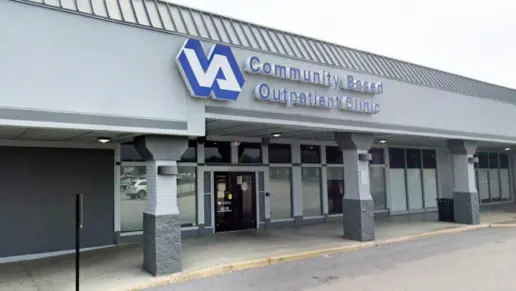Well they were good up until the end of my inpatient stay but once I got to outpatient PHP and developed an ulcer/ mouth sore and they made me go over to ER to prove it which costs me 330 bucks just to tell me I was right and I really did have a mouth sore... All the doctor ...
About The Brook Hospital – Dupont
The Brook Hospital–Dupont offers comprehensive addiction recovery services for adolescents and adults in Louisville, Kentucky. They specialize in 12 step focused inpatient, outpatient, and aftercare services. They also provide medically supervised detox and dual diagnosis care. Dedicated programs for teens, young adults, seniors, military personnel, and veterans are available. Primary treatment modalities include individual, group, and family counseling.
The Brook Hospital–Dupont, in Louisville, Kentucky, provides medically supervised detox, inpatient, outpatient, and aftercare services for adolescents and adults. They also offer dedicated programs for young adults, seniors, military personnel, veterans, and persons with co-occurring mental health disorders. Their trauma informed, 12 step focused programs integrate psychotherapy with evidence based complementary therapies.
The clinicians at Brook Hospital-Dupont promote the comfort and safety of clients undergoing substance withdrawal through round the clock medical supervision and medication assistance. FDA approved medications may be prescribed to ease withdrawal symptoms and prevent potentially life threatening medical complications.
The inpatient program is designed to enable clients to focus on their recovery in a highly structured and supportive environment free of the distractions of the outside world. While in residential care, clients will receive daily addiction counseling, including a combination of individual, group, and family therapy. An array of evidence based complementary therapies, including experiential therapy, is also available. Their treatment center is located in a private home like setting with premium amenities, including onsite recreational facilities.
Because many people experiencing substance dependency will also be diagnosed with other co-occurring mental disorders, the Brook Hospital–Dupont prioritizes dual diagnosis care, ranging from disordered eating to trauma recovery programs. Mental health assessments, psychiatric counseling, psychotropic medication induction and management, and electroconvulsive therapy (ECT) are available for clients with co-occurring disorders.
The Brook Hospital–Dupont ensures a robust continuum of care through its outpatient and aftercare programs. Intensive outpatient (IOP) and traditional outpatient programs provide frequent individual, group, and family counseling and continuing education programs in recovery related topics and skills. Aftercare planning and alumni programs are designed to foster sustained sobriety and support family and community reintegration.
The Brook Hospital–Dupont is accredited by SAMHSA and the Joint Commission. They accept private insurance, self pay, military insurance, Medicare, and Medicaid and offer financial assistance based on need.
Rehab Score
Gallery
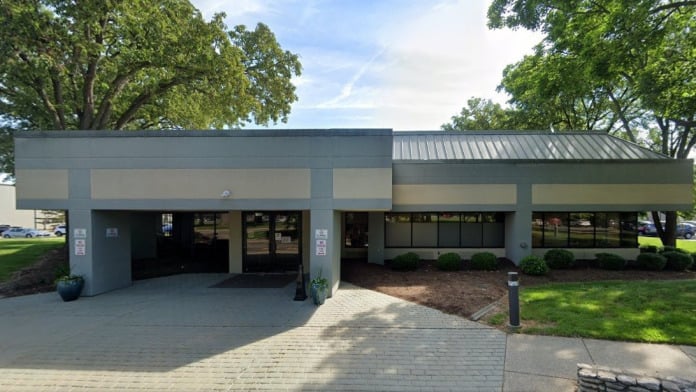
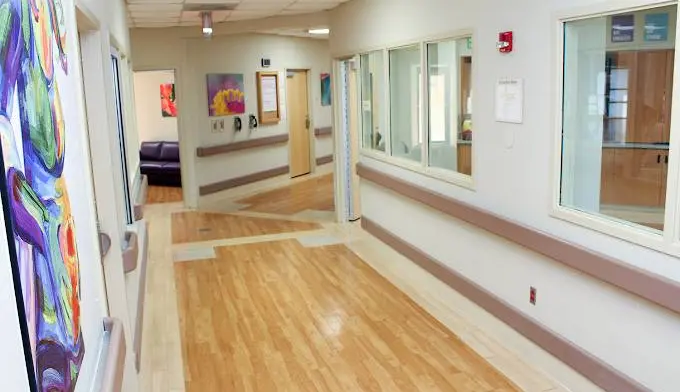
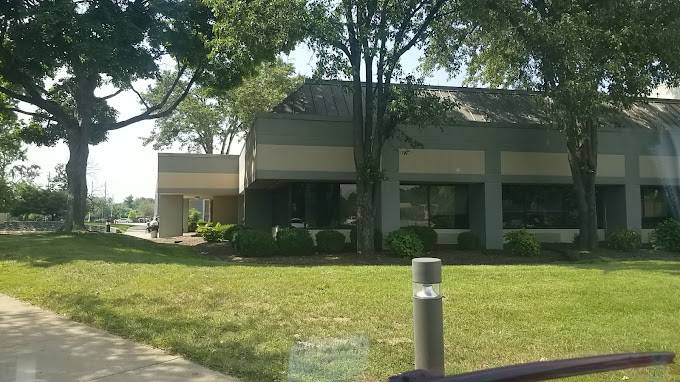
Location
Accepted Insurance
Other Forms of Payment
Medicaid is a state based program that helps lower-income individuals and families pay for healthcare. Medicaid covers addiction treatment so those enrolled can use their coverage to pay for rehab. When a program accepts Medicaid the client often pays very little or nothing out of their own pocket.
Private insurance refers to any kind of healthcare coverage that isn't from the state or federal government. This includes individual and family plans offered by an employer or purchased from the Insurance Marketplace. Every plan will have different requirements and out of pocket costs so be sure to get the full details before you start treatment.
Self-pay involves paying for treatment out of your own pocket. You can use savings or credit, get a personal loan, or receive help from family and friends to fund your treatment. If you don't have insurance or your insurance plan doesn't cover a specific program, self-pay can help ensure you still get the care you need.
Financial aid can take many forms. Centers may have grants or scholarships available to clients who meet eligibility requirements. Programs that receive SAMHSA grants may have financial aid available for those who need treatment as well. Grants and scholarships can help you pai for treatment without having to repay.
Medicare is a federal program that provides health insurance for those 65 and older. It also serves people under 65 with chronic and disabling health challenges. To use Medicare for addiction treatment you need to find a program that accepts Medicare and is in network with your plan. Out of pocket costs and preauthorization requirements vary, so always check with your provider.
Military members, veterans, and eligible dependents have access to specific insurance programs that help them get the care they need. TRICARE and VA insurance can help you access low cost or no cost addiction and mental health treatment. Programs that accept military insurance often have targeted treatment focused on the unique challenges military members, veterans, and their families face.
Addiction Treatments
Levels of Care
Treatments
The goal of treatment for alcoholism is abstinence. Those with poor social support, poor motivation, or psychiatric disorders tend to relapse within a few years of treatment. For these people, success is measured by longer periods of abstinence, reduced use of alcohol, better health, and improved social functioning. Recovery and Maintenance are usually based on 12 step programs and AA meetings.
Drug rehab in Kentucky often starts with detox, then includes inpatient or outpatient treatment, and continues with aftercare support. Specific methods used during each of these phases varies, but often include individual and group counseling, medication, and recreational therapies.
Many of those suffering from addiction also suffer from mental or emotional illnesses like schizophrenia, bipolar disorder, depression, or anxiety disorders. Rehab and other substance abuse facilities treating those with a dual diagnosis or co-occurring disorder administer psychiatric treatment to address the person's mental health issue in addition to drug and alcohol rehabilitation.
A combined mental health and substance abuse rehab has the staff and resources available to handle individuals with both mental health and substance abuse issues. It can be challenging to determine where a specific symptom stems from (a mental health issue or an issue related to substance abuse), so mental health and substance abuse professionals are helpful in detangling symptoms and keeping treatment on track.
Opioid rehabs specialize in supporting those recovering from opioid addiction. They treat those suffering from addiction to illegal opioids like heroin, as well as prescription drugs like oxycodone. These centers typically combine both physical as well as mental and emotional support to help stop addiction. Physical support often includes medical detox and subsequent medical support (including medication), and mental support includes in-depth therapy to address the underlying causes of addiction.
Programs



Clinical Services
Whether a marriage or other committed relationship, an intimate partnership is one of the most important aspects of a person's life. Drug and alcohol addiction affects both members of a couple in deep and meaningful ways, as does rehab and recovery. Couples therapy and other couples-focused treatment programs are significant parts of exploring triggers of addiction, as well as learning how to build healthy patterns to support ongoing sobriety.
Eating disorders include anorexia, bulimia, binge eating, and dysfunctional eating patterns. Many psychologists and other mental health professionals consider eating disorders to be food addictions, meaning food is being used in an addictive way (similar to drug or alcohol addiction). Certain substance abuse treatment programs will have treatment for eating disorders as one of the services offered. An eating disorder may also present as a co-occuring disorder or dual diagnosis alongside drug and alcohol addiction.
Electroconvulsive Therapy (ECT) is recognized by the National Institute of Mental Health as a successful treatment option for severe depression, bipolar disorder, and schizophrenia. A patient usually receives an ECT treatment two to three times a week for a total of six to twelve treatments. ECT is an exceptionally effective medical treatment, helping 90% of patients who receive it. Most patients remain well for many months after a treatment course; however, monthly or bimonthly maintenance treatments are also an option to maintain disease remission.
Experiential therapy is a form of therapy in which clients are encouraged to surface and work through subconscious issues by engaging in real-time experiences. Experiential therapy departs from traditional talk therapy by involving the body, and having clients engage in activities, movements, and physical and emotional expression. This can involve role-play or using props (which can include other people). Experiential therapy can help people process trauma, memories, and emotion quickly, deeply, and in a lasting fashion, leading to substantial and impactful healing.
Research clearly demonstrates that recovery is far more successful and sustainable when loved ones like family members participate in rehab and substance abuse treatment. Genetic factors may be at play when it comes to drug and alcohol addiction, as well as mental health issues. Family dynamics often play a critical role in addiction triggers, and if properly educated, family members can be a strong source of support when it comes to rehabilitation. At the Brook Hospital family members are also invited to participate in treatment team and family sessions.
Group therapy is any therapeutic work that happens in a group (not one-on-one). There are a number of different group therapy modalities, including support groups, experiential therapy, psycho-education, and more. Group therapy involves treatment as well as processing interaction between group members.
In individual therapy, a patient meets one-on-one with a trained psychologist or counselor. Therapy is a pivotal part of effective substance abuse treatment, as it often covers root causes of addiction, including challenges faced by the patient in their social, family, and work/school life.
Trauma therapy addresses traumatic incidents from a client's past that are likely affecting their present-day experience. Trauma is often one of the primary triggers and potential causes of addiction, and can stem from child sexual abuse, domestic violence, having a parent with a mental illness, losing one or both parents at a young age, teenage or adult sexual assault, or any number of other factors. The purpose of trauma therapy is to allow a patient to process trauma and move through and past it, with the help of trained and compassionate mental health professionals.
Amenities
-
Private Setting
Staff & Accreditations
Staff
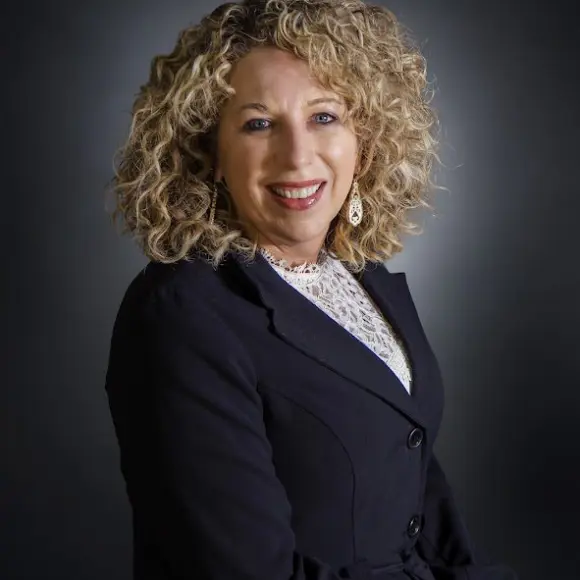
Chief Executive Officer
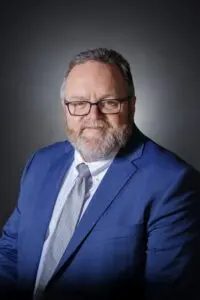
Chief Financial Officer
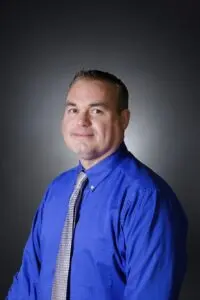
Chief Nursing Officer

Intake Director
Accreditations

The Joint Commission, formerly known as JCAHO, is a nonprofit organization that accredits rehab organizations and programs. Founded in 1951, the Joint Commision's mission is to improve the quality of patient care and demonstrating the quality of patient care.
Joint Commission Accreditation: Yes
Contact Information
1405 Browns Lane
Louisville, KY 40207







